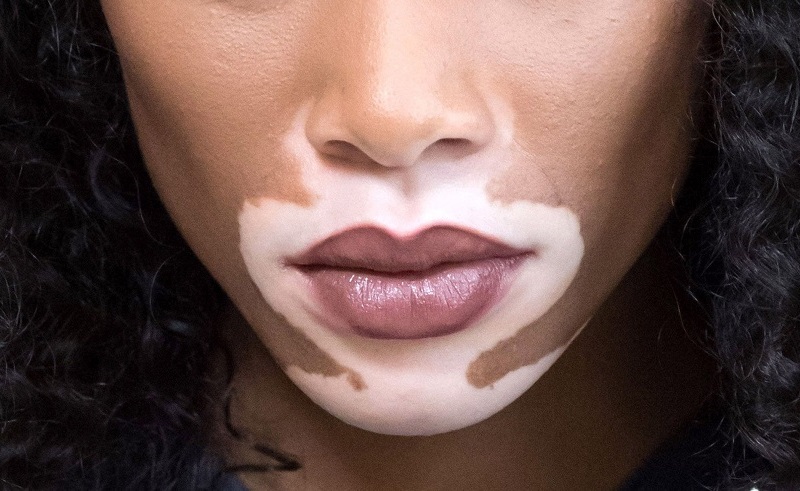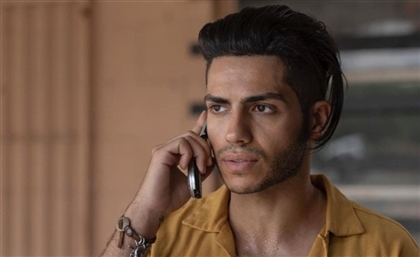Why Egyptians Living With Different Skin Conditions Think Egypt is Hell
Staff Writer Heba Radi speaks to Egyptians living with Psoriasis, Vitiligo, and Alopecia on her quest to expose how much damage bullying can cause.

Egyptian children grow up in a society that makes them constantly aware of how different they may be, and those differences - more often than not - usually end up as an open invitation to mockery and bullying. Those living with skin conditions like vitiligo, alopecia, and psoriasis in Egypt don't have it easy from the get-go, and such a distressing environment ends up taking a toll on their overall mental and physical wellbeing. Such conditions could be inherited or caused by severe mental struggles, which was the case with Nada*, a 25-year-old who's had vitiligo-inflicted white circles around her eyes ever since a traumatising childhood experience.
"Because of my skin colour, other kids would often make fun of me and say that I must have gotten burnt before," recounts Nada. "I never reached out for help or told anyone, but I was always crying in silence."
Such emotional distress at a young age made Nada develop the skin deficiency which made her vulnerable to even more bullying. Teachers at her school would think she's wearing makeup and would forcefully wipe her eyes to make sure that's not the case. "The doctors said my condition is due primarily to physiological reasons and that it would get better if I'm less stressed out and anxious all the time."
I never reached out for help or told anyone, but I was always crying in silence.
Over the years since, the doctors' recommendations seemed to be true. Whenever she's relaxed and not distressed, Nada's condition would get better and the marks would become less visible, however now, even the regular stresses of daily life and work would easily worsen her condition again.
"I took so much medication and tried so many different treatments that I've totally had it with the doctors. I gave up hope that it will ever go away and I'm trying to find my peace with it. That's not to say that I haven't gone to great lengths to find a treatment."
"Vitiligo patients rarely seek or stay on track with treatment options for the lack of short-term results," explains Dermatologist Amr Abdel-Aziz. "They quickly fall into desperation especially that proper treatment could take a very long time."
In 2016, Egypt's first medical conference on vitiligo was held in Al Hawd Al Marsoud hospital. Prominent skin consultant Ahmed Magd said then that many technologically-advanced treatment options are now available and being developed further than before, which he says offers a shred of hope to vitiligo patients around the world who account for about 2% of its population.
For 27-year-old Mohamed*, seeking medical advice was never an option. One year ago, he noticed white spots in his genital area. He self-diagnosed using Google and has been reluctant to visit a doctor ever since. When he read that treating such a condition would be by exposing the area to direct sunlight, which is "impossible to happen [he] decided to just ignore it, especially that no new spots are appearing on [his] skin anymore."
What's most painful is how people treat me; some just avoid me altogether and others that I have known for years stopped being my friends because they were afraid I'd infect them.
The most common misconception about Vitiligo is that it's an inherited condition, which presented a different set of struggles to 32-year-old Hassan, whose marriage proposals got rejected numerous times due to fear that he would pass on the condition to his offspring.
"The series of rejections he was subject to really affected his life, even though he is an educated person, whose parents are doctors, and who knows that his condition would take time to treat," explains Hassan's cousin Amal. "A while later, he finally married a pharmacist who understood his condition, and she accepts and loves him for who he is."
"If you fall out the window, you would leave a huge hole behind," is an example of what Noran, who's now in her mid-50s, used to hear from her classmates as a teenager on account of her extra weight. Helpless as a child would be, she would usually stay quiet and not clap back. With no release, the trauma eventually took the form of a rather embarrassing physical disorder.
"One day while brushing my hair, I found a hairless gap that took up the size of two whole fingers. All the silence and internalisation I went through was the reason I got alopecia, and I immediately went on an extensive treatment course using ultra violet rays," explains Noran. "With time I started getting better and my hair grew back, but I never wish to go through such an incredibly painful experience again."
The series of rejections he was subject to really affected his life, even though he is an educated person, whose parents are doctors, and who knows that his condition would take time to treat
Alaa Samra, an established Plastic Surgeon, says that alopecia is caused by a mix of genetic and environmental factors, however he emphasises that this doesn't mean a parent would necessarily pass it on to a child. In fact, according to Samra, being born to an alopecia patient only increases one's chance of having the condition by 10%-25%; the greater risk is with the environmental and physiological factors.
In Egypt, 7% of patients to skin clinics across the country are seeking treatment for alopecia, which could affect men and women at any stage of their lives.
Psoriasis, which is an autoimmune disease that causes the development of patches of abnormal skin, can be triggered by numerous factors such as stress, smoking, heavy drinking, skin infections, and many others. Dr Mahira Hamdy, a member at the International Psoriasis Foundation, warns that Egypt and the Middle East have a very high percentage of sufferers from the disease. Up to 11% of the region's population live with psoriasis, which Dr Hamdy explains can also affect muscle joints and is predominantly genetically inherited.
"I just woke up one day and it was there, with no prior warning," tells us Hala, 25-year-old Psoriasis patient. "The spots rapidly expanded on my skin and even simple things like washing my hands would be painful. I've tried every treatment and lotion in the market and even tried natural remedies in Safaga and Sinai. But what's most painful is how people treat me; some just avoid me altogether and others that I have known for years stopped being my friends because they were afraid I'd infect them."
Sayida Zainab's Al Hawd Al Marsoud Hospital offers check-ups for such skin conditions at low prices, and is considered one of Egypt's biggest hospitals in that field. Get in touch with them 02-23910898.
*Names have been changed at the interviews' requests
Translated by: Moustafa Daly
Originally Published on ElFasla
Trending This Week
-
Apr 03, 2025





















